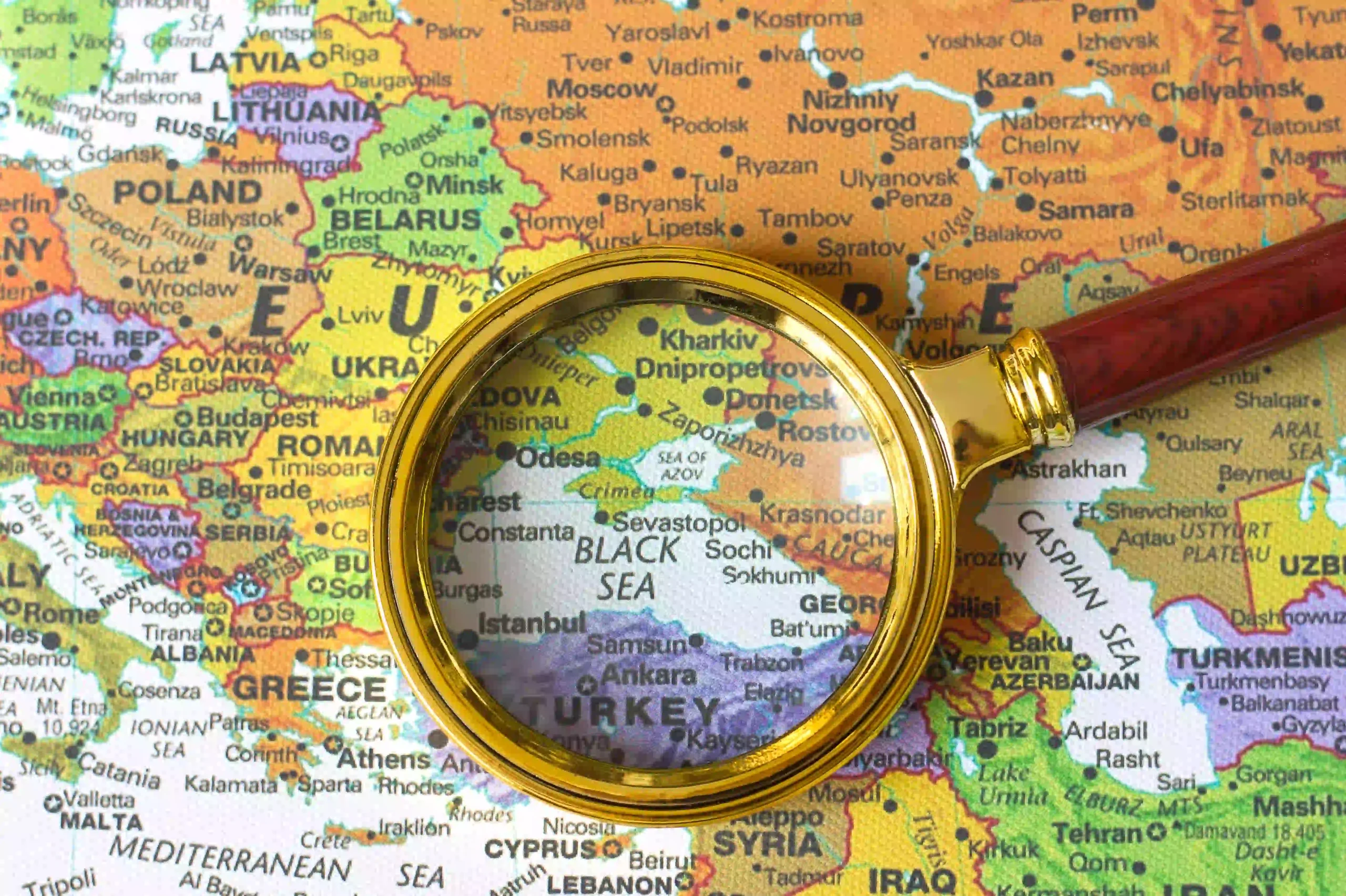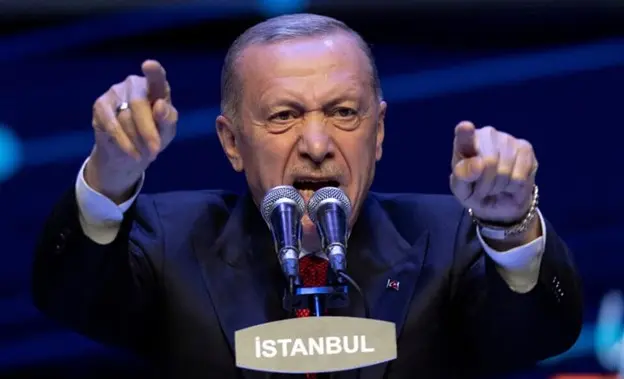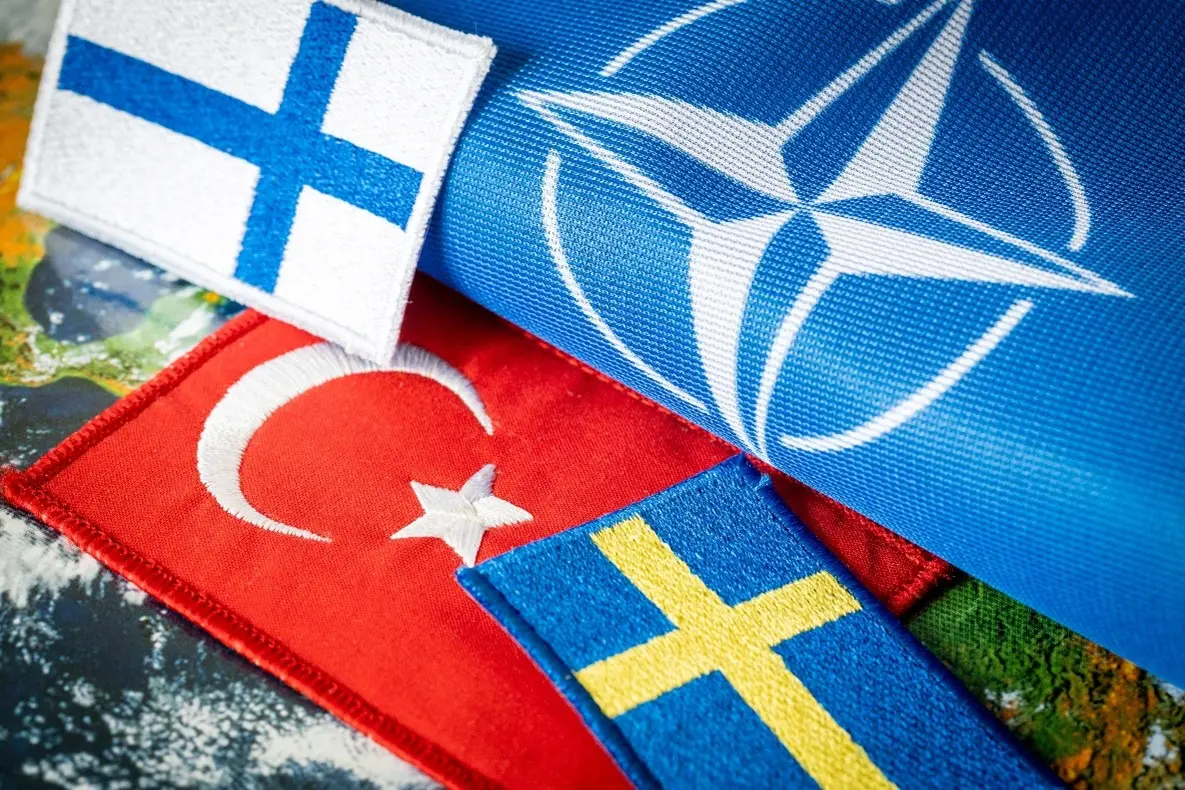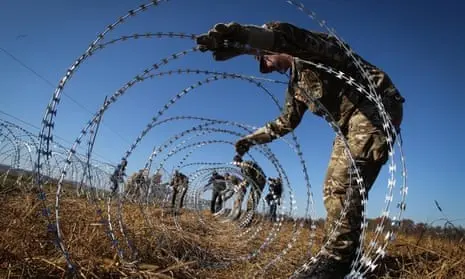10 Dec 2024
What If: Israel Created a New Corridor to the Euphrates in Syria?
The dream of Greater Israel is not fictional but real, first developed by Theodore Hertzel, the founding father of Zionism, Greater Israel include all lands from the Nile in Egypt to the Euphrates in Iraq. This includes territories from Egypt, Syria, Iraq, Kuwait, Saudi Arabia, all Jordanian territory, and all historical Palestine. In 2017, the United Nations issued a report indicating that Israel is proceeding with its plans to annex Palestinian lands in the West Bank while keeping Palestinians in severe conditions of isolation and deprivation. Moreover, soldiers of the Israeli army have worn badges showing Greater Israel during military operations in Gaza, indicating that Israel might expand its military operations in the Middle East after ending its military operations in Gaza. The pathway to accomplishing the dream of Greater Israel began in November 2024 when Israel entered the demilitarised zone that separates the occupied Syrian Golan Heights. In this area, Israel began establishing a construction project, paving a road along the borders with Syria. What if the Israeli construction project in Syria is the first step to build a corridor that would connect Israel to the Euphrates, thus making Israel closer to achieve the dream of Greater Israel? What will be the consequences if Israel manages to create this corridor?
2 Dec 2024
Remontada?! How Will Syrian Armed Factions Redefine the Regional Landscape
On Wednesday, Nov. 27, 2024, Syrian armed factions launched a coordinated offensive targeting regime-controlled sites and militia positions in the western countryside of Aleppo, northern Syria. This operation marks the most significant joint military action since 2016, involving key groups such as “Hay'at Tahrir Al-Sham” (formerly Jabhat Al-Nusra). In a video statement, the Joint Operations Room declared the initiation of the “Deterrence of Aggression” operation. The announcement emphasised that the offensive was necessitated by recent regime movements threatening civilian areas, framing the operation as a defensive imperative rather than a strategic choice. The statement underscored that this action was in direct retaliation for the Syrian regime's bombardment of north-western regions, signalling a potential escalation in the conflict dynamics of the region.
25 Nov 2024
Turkish Drones: Expanding Influence and Bringing New Challenges
Turkey has been working on developing its locally-manufactured military capabilities, including drones, for decades, attempting to present itself as a new rising regional power that can affect global politics. Turkey also recognised the importance of drones in supporting ground forces through providing air monitoring services and collecting intelligence about the Kurdistan Working Party (PKK), maximising its motivation to develop locally-made drones. Moreover, due to lack limitations on importing technology from Western powers that share contradictive perspectives with Turkey over issues of refugees, and the Syrian and Libyan Civil Wars. Ankara has paid deep attention to developing its Unmanned Aerial Vehicles (UAVs), which are publicly known as drones, trying to fill the void of not possessing advanced aircraft such as F-22 or F-35. This analysis explores the different reasons that motivated Turkey to develop UAVs along with the benefits and challenges the Turkish diplomacy experienced.
12 Sep 2024
Turkey and Somalia: A New Rising Pact in the Horn of Africa
Turkey has a deep interest in the Horn of Africa and considers it as the gate to the East of the continent. Since 2011, Turkey has increased its humanitarian aid to Somalia, signed military and economic agreements and contributed to the process of state-building through allowing its companies to construct infrastructure, schools, hospital, and governmental premises. In 2017, Turkey has opened the largest military base, known as TURKSOM, beyond its borders to fully qualify the Somali army to deter the threat arising from the Al-Shabab movement that has been designated as a terrorist organization by the United States (U.S.) since 2008.
In February 2024, Turkey signed significant military and economic agreements with Somalia, allowing it to a key player in the politics of Horn of Africa. According to the 10-year pact, Turkey will help Somalia to defend its maritime against piracy, smuggling, and foreign intervention from Ethiopia. Turkey is also obliged by the terms of this agreement to train and rebuild the Somali naval forces. The process of rebuilding includes weaponizing the Somali naval forces with Turkish weapons manufactured locally. These weapons include frigates built mainly for the Somali navy, which means that the Turkish military exports will witness an increase of demand on its products in the forthcoming years. This would motivate other countries to buy Turkish weapons, especially if Turkish weapons proved its efficiency in securing Somali maritime. These agreements also enable Turkey to work on extracting natural resources from the Somali territorial water in return for an agreed-upon percentage for Turkey. Some reports revealed that Turkey will receive 30% of the revenues of the Somali economic zone. Somali airspace will also be fully opened for Turkish military use. This analysis explores Turkish motivations of signing this agreement and the challenges that it might confront while implementing it.
5 Sep 2024
El-Sisi’s Visit to Ankara: A Key Diplomatic Move During Unrest
In a move with significant political and economic implications, Egyptian President Abdel Fattah El-Sisi embarked on an official visit to Ankara Sept. 4, 2024. This highly anticipated visit comes months after Turkish President Recep Tayyip Erdogan's visit to Egypt earlier this year and his invitation to President El-Sisi to Ankara. The current visit, considered a turning point in Egyptian-Turkish relations, aims to strengthen bilateral cooperation and open new avenues for coordination on regional and international issues. After a decade of tension and estrangement in the relations between Egypt and Turkey.
The Egyptian President's visit to Turkey is of special importance, as it is the culmination of a long phase of discussions aimed at restoring relations between Egypt and Turkey to their normal course. The rounds of talks and meetings concluded with Erdogan's visit to Cairo last February, which witnessed the announcement of the revival of the High-Level Strategic Cooperation Council for relations between the two countries in its new form, where both leaders co-chair the first meeting of the Council. The meeting also involved a comprehensive review of the Egyptian-Turkish bilateral relations and discussions on potential steps to further enhance the Egyptian-Turkish cooperation.
This analysis highlights the motivations of this visit and its implications on regional and Turkish politics.
15 Aug 2024
Syria-Turkey Normalisation: Are Yesterday’s Enemies Today’s Friends?
Since the eruption of the Syrian Civil War in 2011, several countries have cut diplomatic relations with Syria turning Damascus into a pariah state. 13 years later, the shifting regional geopolitical landscape appears to be ushering in a new reality. Today, both regional and global powers are moving toward rapprochement with Syrian President Bashar Al-Assad’s regime. In a significant U-turn, Turkish President Recep Tayyip Erdogan, once a staunch opponent of Al-Assad, is now seeking normalization with Syria. While, Turkey is not alone in this effort, Syria's potential reintegration could have far-reaching implications.
22 Feb 2024
Turkey: Reaping the Rewards of a Turbulent Black Sea
Since the 16th century, the Black Sea has always been a lake of tensions. Contrary to the Wars of The Holy League, in which the Ottoman Empire witnessed its first territorial loss, the contemporary situation signals Turkish gains in the region. The ongoing war in Ukraine has revived the Montreux Convention which gives Ankara the higher hand in the Black Sea and led other NATO members to appreciate the indispensable Turkish role. Recently, developments in the Black Sea ranging from decaying Russian power to Western apprehension are offering Ankara some Turkish delights.
29 Jan 2024
Decoding the Istanbul Church Attack
This article was originally published on Ahram Online on Jan. 31, 2024.
The attack on the Santa Maria church in Istanbul is the first attack on Turkey claimed by IS since 2017. According to the Islamic State's statement, the attack was a response to one of its leaders instructing for the attack on "Jews and Christians". However, the end goal of the attack remains unclear and that raises questions about the legitimacy of IS’s claim. Over the last decade, the world has witnessed a sharp rise in terrorist attacks often claimed by terrorist groups striving to establish their relevance and influence over international politics. In fact, between 1998 and 2016, an estimated 16% of attacks were falsely claimed.
12 Oct 2023
Shifting Seas: Changing Directions of Animosity in Turkish Society
While hosting approximately four million Syrian refugees, Ankara no longer maintains its previous reputation as a warm and welcoming host. A series of events have indicated a growing trend that can be described as "Anti-Arabism," while simultaneously, the historical animosity towards Jews is waning. It is suggested that the former trend may be feeding into the latter. Due to a substantial influx of migrants and a challenging economic situation, refugees of Arabic descent appear to have become scapegoats, surpassing Jews as the primary target for hate speech and hostility in the country. These two trends might be interconnected, and understanding their underlying factors and the evolution of this phenomenon demands careful consideration.
2 May 2023
Nationalism: The Last Card in Erdogan’s Hands
With the date of Turkish elections coming soon, Turkish president and his Justice and Development Party (AKP) are facing one of the most serious challenges since the year they came to power. Namely, inflation exceeded 80% in September 2022 and Turkish Lira plummeted in the face of American Dollar. These economic hardships are leading the prospects of a political change to peak. According to polls, Erdogan is in real trouble with the AKP receiving barely 29.5% of votes. Accordingly, Erdogan and his allies resorted to the Nationalist rhetoric knowing that it is an important card when it comes to attracting Turkish citizens’ votes. Turkish Nationalism is believed to be nurtured by Kurdish uprisings and the belief in the “revival” of the Ottoman empire. Next May, general elections are to be held in the middle of the aforementioned atmosphere which threatens Erdogan's legacy. Using the same nationalist tactic as he used in 2018, will the Turkish President succeed again or it is a burned card not useful anymore?
23 Mar 2023
A Window of Opportunity: A Reading of Turkey’s Position on Sweden and Finland’s NATO Membership
The North Atlantic Treaty Organization (NATO) philosophy is based on promoting peace and stability and protecting the security of its members through a European and North American defence alliance. The alliance enjoys an "open door policy" whereby any European country willing to undertake the obligations and commitments of membership is welcome to apply for membership. Any decisions on expansion must be approved by a unanimous vote of the current 30 members. The essential feature of the alliance is Article 5 of the Washington Treaty on Collective Defence, which establishes NATO as a powerful alliance that guarantees security by the military response and protects any member state if it is attacked.
20 Mar 2023
Securitization of Migration: An Elastic Tool
Securitizing an issue means simply, designating an issue as of an extreme danger to be dealt with urgently. The theory of securitization stipulates that national security policies are not given but are formulated by policy makers mainly through their uttered words. Accordingly, narratives given by policy makers frame issues as either a security threat, a mere challenge or even an opportunity. The same issue can be mentioned by the same political leader once as a security threat that the nation should mitigate at some point and an asset at another. Migration is one of those issues which governments either give a securitizing polish or none at all. In this analysis, the argument goes that “national interests” made-up from economic and political conditions are the main factors in deciding the given frame.











